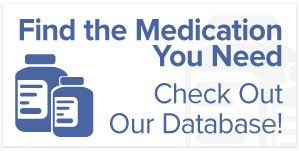Most people experience hip discomfort at some point in life. Hip discomfort can be brought on by various factors, such as joint problems and overuse. It could be annoying and even incapacitating for some people, regardless of the cause.
It is crucial to address this problem as soon as possible, regardless of whether it’s a little inconvenience or a hindrance to your everyday activities. Untreated hip discomfort may result in physical adjustments that aggravate leg or back pain.
Here are a few tips to overcome hip pain.
1. Exercise
Hip pain reduction is among several benefits of maintaining a regular workout schedule. Physical activity helps various muscles become stronger and enhance their strength and flexibility, allowing a person to prevent this injury even if they aren’t suffering from pain.
If you already experience hip pain, you might want to change your exercise routine to something easier on the joints. This includes practicing yoga and walking on even surfaces such as a treadmill to alleviate joint pressure. Walking or doing cardiovascular activities in shallow waters, like in a pool, is another fantastic type of exercise.
2. Over-the-Counter Pain Killers
Anti-inflammatory drugs may help ease the pain in mild or moderate hip discomfort. These medications lessen inflammation, which can lessen joint and muscular pain. They are frequently affordable and easily accessible, and if the hip issues keep you up at night, many could be bought in day versions that also include sleep medication.
However, NSAID use over an extended period has also been associated with liver and digestive issues. If you want to consume them for longer, for example, more than ten days, talk to a doctor first.
3. Use Ice Packs
Most medical professionals advise using an ice pack on the hurt hip for 15 minutes at a time during the day. The cold lessens the pain by reducing inflammation and dulling the nerve ends. You can get similar results by using any cold, bendable object, and ice packs are unnecessary.

4. Rest
Even though it should go without saying, many patients must be made aware that they need to rest. Hip pain can be a major condition that is considerably easier to control when the problem is not continually aggravated.
You should minimize any task that requires moving the damaged hip in a manner that will hinder the injury and increase the pain. Resting doesn’t mean you must also stop doing anything and lie in bed.
Prescription Assistance Program
If your hip pain lasts for more than a few days, consult a doctor and get it checked. Treatment and prescription costs can be unaffordable if you aren’t insured or underinsured. The Rx Helper provides financial assistance to people who need it through our prescription assistance programs. Enroll now to access affordable medication or contact us for more information.
Disclaimer: This article is for educational purposes and shouldn’t be used as a substitute for medical advice.



